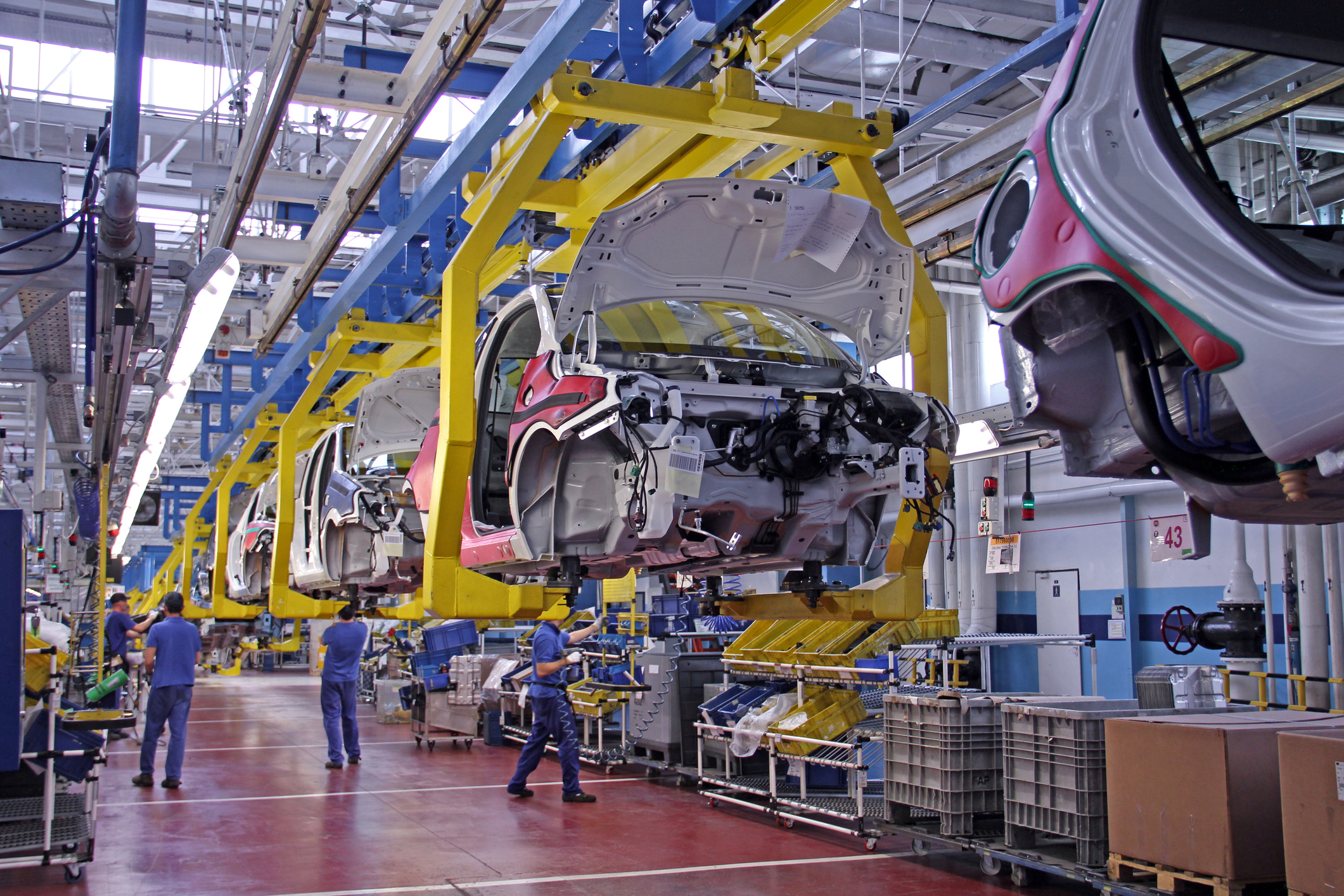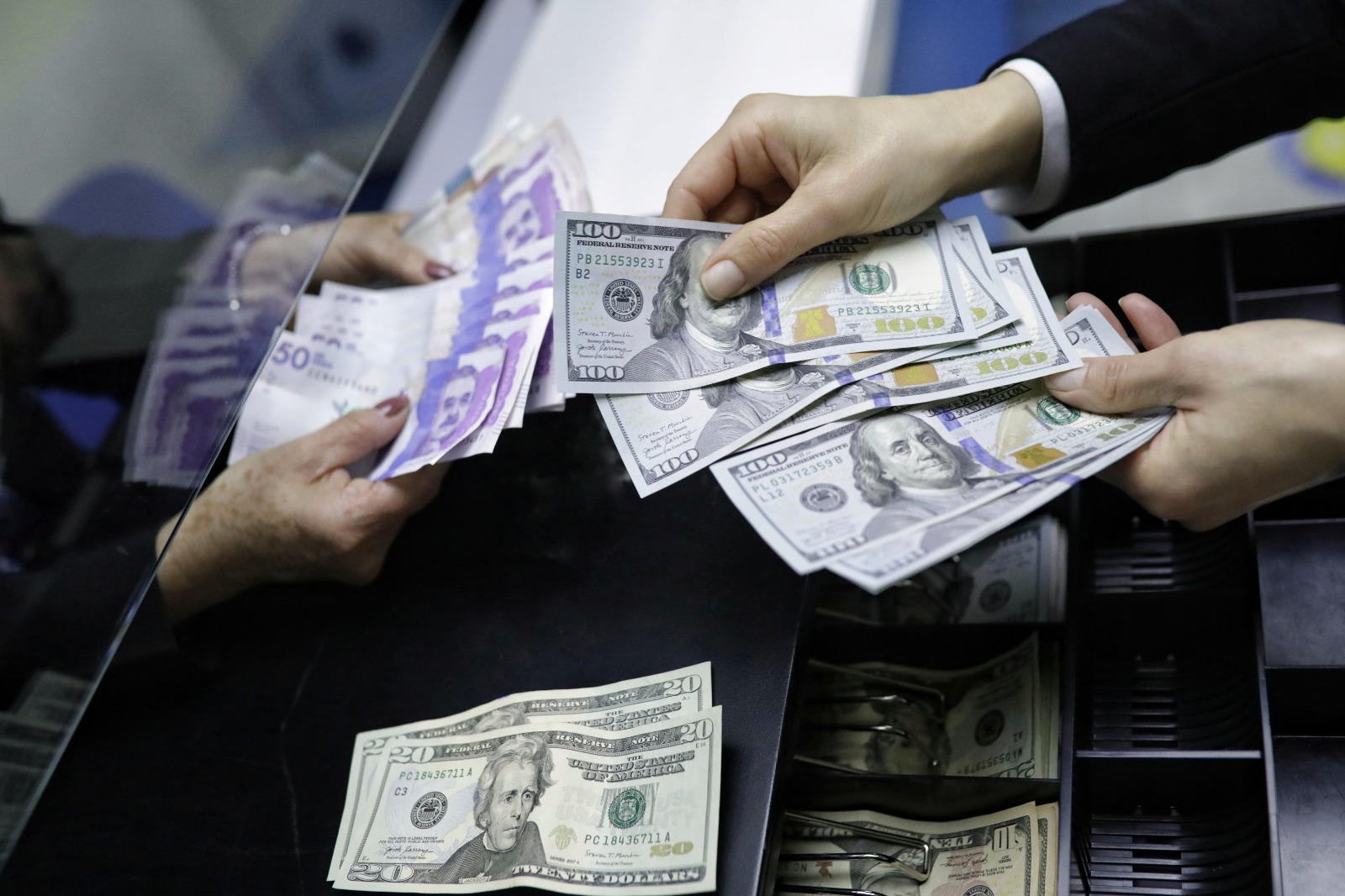Colombia's economy is doing better than expected. Why? / Analysis by Ricardo Ávila

John Jairo Rodríguez says that after much thought, he finally decided to trade in his current motorcycle. “The salesman in Tunja finally convinced me I was getting a good deal. And how could I say no?” the Boyacá farmworker laughs before climbing onto the machine he received three weeks ago.
Their case is far from unique. As revealed a few days ago in a report by Andi and Fenalco , 490,238 two-wheeled vehicles were sold nationwide at the end of the first half of the year, a figure that exceeds the figures for the same period in 2024 by 32 percent and constitutes a new all-time high.
Similar trends are observed in other branches of commerce. Categories such as cell phones, computers, and household appliances are experiencing significant growth, as is the case in areas such as personal hygiene and household products, utensils, and hardware.
According to DANE (National Statistics and Census), between January and May, positive variations in real store sales were 11 percent annually and extended to 18 of 19 merchandise lines. The only item with a negative balance is non-alcoholic beverages, a situation influenced by the harsh winter season, which has been accompanied by lower-than-usual temperatures.
These figures allow for a favorable report. For Luis Fernando Mejía, executive director of Fedesarrollo, "the economy looks good: growth close to 2.6 percent so far this year; inflation has steadily declined and is now below 5 percent annually ; and an unemployment rate that continues to decline."
Another analysis: Houses in the air / Analysis by Ricardo Ávila
Furthermore, the expert highlights the improvement "in consumer confidence, which closed with a positive balance in June, for the first time since 2022," according to the monthly analysis conducted by his agency. According to the report released this week, both current economic conditions and people's expectations showed a significant increase. Furthermore, appetite for purchasing homes and other durable goods experienced a strong rebound.
This contrasts with what surveys convey regarding the general perception of the country . Without exception, the various polls make it clear that citizens, by a ratio of two to three to one, believe that things in Colombia are going badly. However, when those questioned about their individual situation, their opinions change, and the balance becomes favorable.
Wind in your favor As is usual in these cases, there is more than one explanation for the current climate. "The truth is that, from a domestic perspective, we are seeing a dynamism that has been supporting this economic growth," says Laura Clavijo, Director of Economic Research at Bancolombia.
Thanks to this circumstance, not only is trade doing well, but industry is also showing signs of decline. The acceleration began at the end of last year and has maintained a relatively stable pace. On Friday, DANE reported that the annual growth rate of the Economic Monitoring Indicator stood at 2.7 percent at the end of May, after adjusting for seasonal and calendar effects.
This figure, while in line with the predictions made by experts at the beginning of 2025, comes as a surprise to some. The reason is that, on the political front, as well as regarding public order, turbulence is increasing.
To begin with, there is a radicalization of the positions taken by Gustavo Petro, who is increasingly critical of his opponents and senior government officials. Both the long presidential monologue during the televised cabinet meeting on Tuesday and his pronouncement on health sent signals that, perhaps under other circumstances, would have provoked market reactions.

The economy is likely to maintain a similar pace for the remainder of 2025. Photo: iStock
However, the veiled or explicit threats emanating from the Casa de Nariño government seem to have little impact on people's mood when it comes time to open their wallets. One likely reason is that the election season is approaching, and with it , hope for change increases, along with the desire to invest in a better future. Luis Fernando Mejía recalls that three years ago, this factor boosted consumer confidence, something that could be repeating itself now.
There are also reasons inherent to the current situation. Camilo Herrera, head of the firm Raddar, argues that three factors are influencing household behavior. "To begin with, the increase in the current real minimum wage brought an increase in purchasing power in a context of falling inflation, coupled with significant growth in consumer credit issuance, which is growing by over 34 percent annually."
He adds that "the behavior of remittances sent by Colombians living abroad is another essential factor to consider." According to the Bank of the Republic, in the first five months of 2025, foreign currency inflows from this source amounted to $5.324 billion, 15 percent more than the same period of the previous year.
The combination of these elements means that the wind is still blowing in our favor. Raddar reports that in June, the annual increase in real household spending reached 5.3 percent, a figure that exceeds the average of recent years.
There's no doubt that the state checkbook has also played a role in what happened. Public administration appears in DANE statistics as one of the variables that explains the current performance of the gross domestic product (GDP).
Still, let's not be fooled. Laura Clavijo emphasizes that "families have been the lifeline of the Colombian economy."
Hold the rope From this perspective, the challenge for the remainder of the calendar year is to maintain the observed pace. Although an annual expansion of less than three percent in 2025 would be below the average recorded so far this century, it is in line with Colombia's growth potential.
Colloquially speaking, there's a maximum speed at which the country's productive machinery can operate without overheating, and that's the current speed. While this performance is higher than that of the recent past, it still falls into the mediocre category when compared to recent decades.
Increasing the size of the engine requires a sustained effort. As Luis Fernando Mejía points out, "Today, the investment rate stands at the equivalent of 16.2 percent of GDP, which is the lowest in twenty years and three percentage points lower than before the pandemic."
Aside from this, there's the ongoing health crisis, which continues to deteriorate regardless of the fate of the government's proposal on Capitol Hill. In the electricity sector, alarm bells are ringing due to the intention to change the rules of the game and the unviability of Air-e, whose eventual collapse threatens the other links in the chain.
Added to the list is the deteriorating international climate , and in particular, what happens to relations between Colombia and the United States. The specter of sanctions imposed by Washington is even more frightening now, given Donald Trump's complex character and the constant provocations from Bogotá.
Nor can we ignore the questions surrounding next year's elections. These begin with the attitude of a president who questions the credibility of the National Registry and continue with the express intention of ensuring the Historic Pact receives the largest possible vote in the parliamentary elections.
At the same time, the fact that there are more than 60 pre-candidates for the May presidential elections, with no clear leader from any of them, increases the anxiety of many. Only if the horizon clears could the current paralysis affecting so many be over.
As if the above weren't enough, the worst structural headache facing the Colombian economy is emerging: a massive fiscal imbalance similar to that recorded during the emergency caused by the pandemic, along with a public debt that even exceeds that of that era. Thinking this problem will resolve itself would be more an act of irresponsibility than naiveté, but seeking viable, fundamental solutions—which make austerity measures mandatory—is not on the Petro government's agenda.
Just as with the onset of a serious illness, indefinitely postponing treatment tends to worsen the patient's condition. Only by ensuring that the doctor is the right one and that the treatment is appropriate can the side effects be minimized.
For now, it can be said that Colombia has gotten off to a "good start," as the cost of borrowing hasn't skyrocketed, nor has the exchange rate. Due to circumstances more at the international level than at the local level, the dollar closed below 4,000 pesos on Friday, a level that many considered unthinkable after the most recent downgrade by risk assessment firms.

The dollar closed below 4,000 pesos on Friday. Photo: Sergio Acero Yate
Luis Fernando Mejía believes that "the markets and rating agencies are trusting that a new administration will take the necessary corrective measures." He adds that "failure to do so would lead Colombia toward a fiscal cliff edge, with dire consequences for inflation, growth, and employment."
It's impossible to know how sensitive consumers might be to immediate dangers or to warnings that they must make amends in the near future. What prevails these months is this apparent contradiction between a negative outlook on the collective and a positive outlook on personal and family reality. If this dichotomy continues—as has happened before—it's likely that the economy will maintain a similar pace for the remainder of 2025.
However, it bears repeating that the acceptable economic performance so far this year rests on fragile foundations. Therefore, shaking up the economy with announcements or actions that cause anxiety can lead households to shift from enthusiasm to caution, something undesirable when there is no semblance of a strategy to revive struggling sectors like construction.
Thus, everything depends on resilience, the term the Royal Academy defines as "a living being's capacity to adapt to a disturbing agent or an adverse state or situation." Throughout the history of the Republic, Colombians have given multiple proof of having this element in their DNA. For the sake of the economy, let's hope this attitude continues until the current winter is replaced by the arrival of spring.
eltiempo




